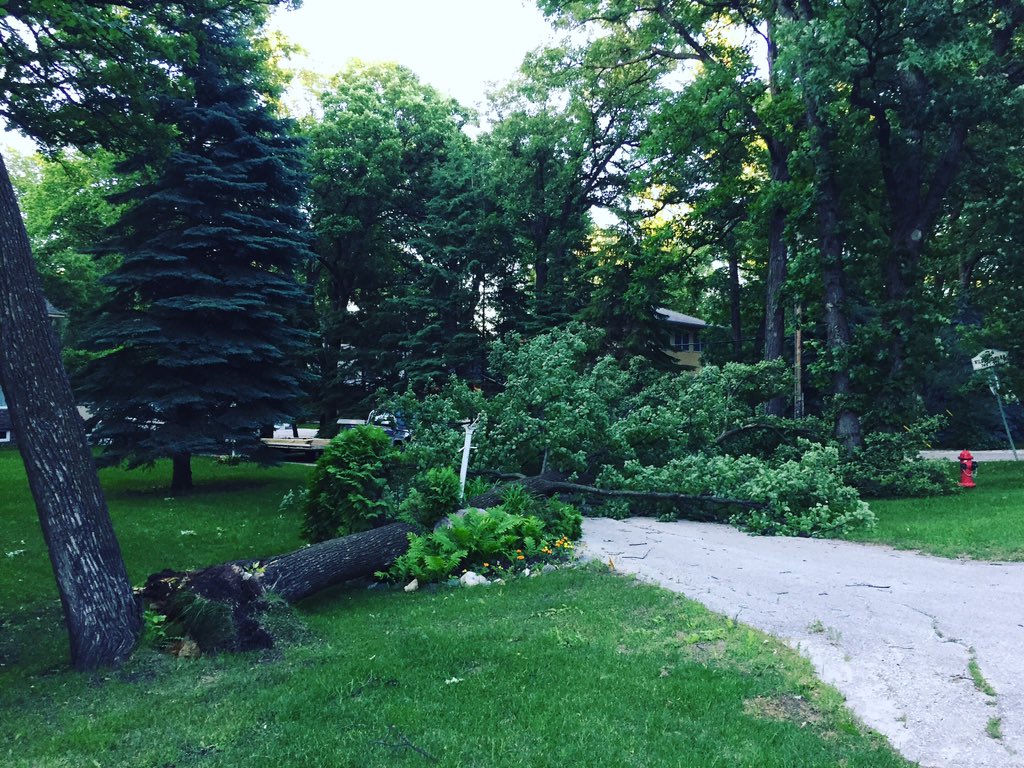A Winnipeg non-profit says it has doubled its tree planting stock this spring due to a surge in demand.

Trees Winnipeg’s bi-annual ReLeaf program offers subsidized seedlings suitable for Winnipeg’s climate and soil.
“I know this summer people really flocked to their yards and public parks, and there was kind of a renaissance of awareness that nature improves our lives,” says Martine Balcaen, Trees Winnipeg’s program director.
Until May 31st, people can choose from nine different tree packages, containing 13 different species, such as Discovery Elm, Manitoba Maple, Skybound Cedar, or European Mountain Ash.
ReLeaf began six years ago as a way to support the city of Winnipeg’s tree planting, according to Balcaen, and has sold out every single year.
The program has grown from distributing between 200 to 250 trees per year, to just under 1,000 if they sell out again this year.
“We sold out about a quarter of them in a couple weeks without any promotion at all. People should check it out fast,” Balcaen says.

Get breaking National news
The trees can be picked up on June 5, and come with a bag of mulch, tree guards, tree care resources, and planting instructions.
- Donald Trump claims B.C.’s ‘very large faucet’ could help California’s water woes
- Canada must speed up progress to hit its 2030 emissions target: report
- U.S. TikTok ban case pits free speech vs. national security. Which will win?
- Meta bans RT, other Russian state media outlets over ‘foreign interference’
City foresters facing multiple challenges
This as the city’s canopy continues to face threats on multiple fronts, such as the Emerald Ash Borer (EAB), Cottony Ash Psyllid, Dutch Elm Disease, drought, and unpredictable weather events
The 2019 snowstorm also brought down an estimated 30,000 of the city’s 300,000 boulevard and park trees, and recovery efforts will be ongoing this year, according to city forester Martha Barwinsky.
“We thankfully received additional funding for this year and over the next three years to manage the impacts of that storm, in the way of replanting but also doing some additional pruning to repair and correct some of the damage,” Barwinsky says.
At least 2,600 trees are expected to be planted across the city this summer, Barwinsky says, which is double the number planted in 2020.
However, it’s worth noting about 2,500 trees are slated for removal this year due to the EAB alone.
“One of the big challenges we have with our urban forests is the lack of diversity,” Barwinsky says.
“We have a monoculture of elm, we have a monoculture of ash, and we see a lot of our canopy as mid to late stage of life cycle. So one of the things we’re doing is trying to build that diversity and build more resiliency into our canopy.”
Beyond reforestation, the foresters will be busy continuing the Dutch Elm Disease program, elm firewood surveillance to prevent the spread of the EAB, along with systematic pruning.
Barwinsky says people can do their part by not transporting firewood in or out of the city, and continuing to water trees on yards or boulevards.













Comments